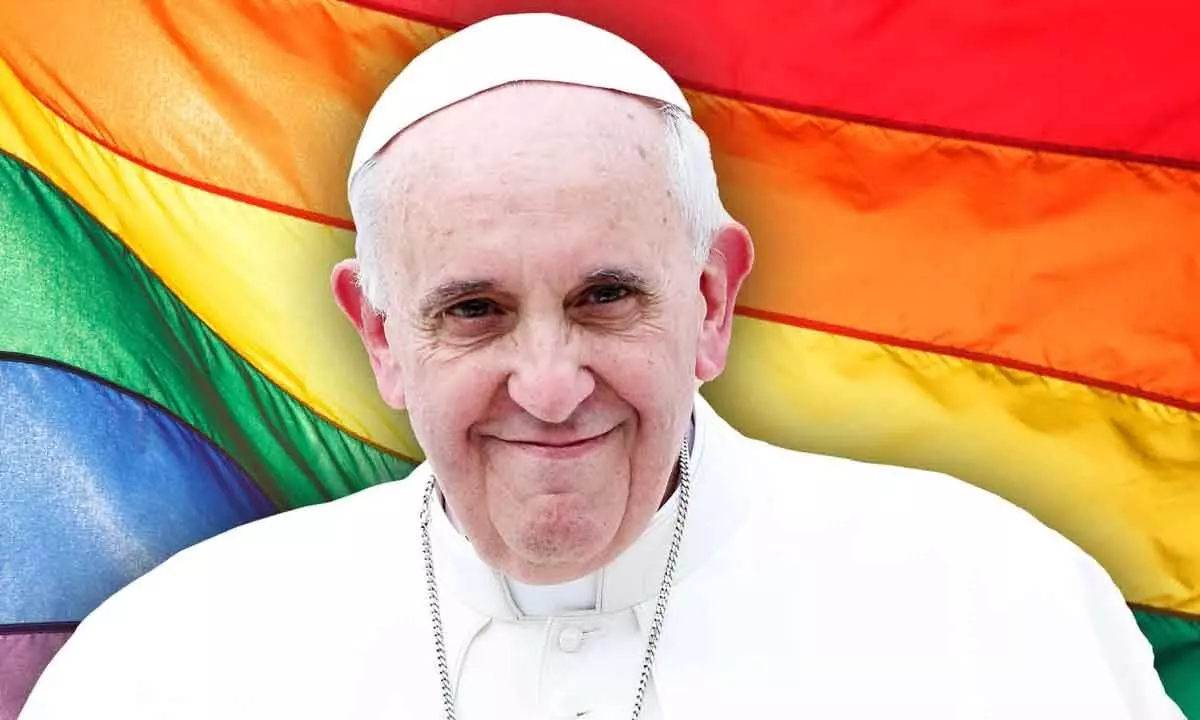Pope is right. Stop unjust bias against LGBTQ

Pope Francis has criticised laws that criminalise homosexuality as ‘unjust,’ saying God loves all his children just as they are, and called on Catholic bishops who support the laws to welcome LGBTQ people into the church. ‘Being homosexual isn’t a crime,’ Francis said during an interaction with the media recently. Francis acknowledged that Catholic bishops in some parts of the world support laws that criminalise homosexuality or discriminate against the LGBTQ community, and he himself referred to the issue in terms of ‘sin.’ But he attributed such attitudes to cultural backgrounds, and said bishops in particular need to undergo a process of change to recognise the dignity of everyone. ‘It may be a sin, but not a crime,’ the Pope said. He even advised them to develop tenderness as “God has for each of us”.
Though significant, these remarks are also consistent with his view in this regard. Some 67 countries or jurisdictions worldwide criminalise consensual same-sex sexual activity, 11 of which can or do impose the death penalty, according to The Human Dignity Trust, which works to end such laws. Experts say even where the laws are not enforced, they contribute to harassment, stigmatisation and violence against LGBTQ people. Despite the Supreme Court of the US declaring it unconstitutional, about a dozen states have anti-sodomy laws.
Gay rights advocates say the antiquated laws are used to harass homosexuals, and point to new legislation, such as the ‘Don’t say gay’ law in Florida, which forbids instruction on sexual orientation and gender identity in kindergarten through third grade, as evidence of continued efforts to marginalise LGBTQ people. Too much of right activity? That is the world anyway. This ‘distortion’ or ‘aberration’ has always been there whether one liked it or not and whether one admitted it or not. History abounds in examples of this activity and yet it always carried a stigma around it.
The United Nations has repeatedly called for an end to laws criminalising homosexuality outright, saying they violate rights to privacy and freedom from discrimination and are a breach of countries’ obligations under international law to protect the human rights of all people, regardless of their sexual orientation or gender identity. Societies are slowly opening up to the acceptance idea. Francis quoted the Catechism of the Catholic Church in saying gay people must be welcomed and respected, and should not be marginalised or discriminated against. These observations of Pope Francis come ahead of a trip to Africa, where such laws are common as they are in the Middle East. Many date from British colonial times or are inspired by Islamic law. Some Catholic bishops have strongly upheld them as consistent with Vatican teaching, while others have called for them to be overturned as a violation of basic human dignity.
The fact that Catholicism does not consider the ‘inclination’ sinful is very different from more fundamentalist Christian churches. It is one of the reasons that the Catholic Church has not officially approved of reparative therapy. The Catechism further states that ‘Homosexual persons are called to chastity.’ However, the doctrine also specifies that, ‘Such persons must be accepted with respect and sensitivity. Every sign of unjust discrimination in their regard should be avoided.’ The actual experience of LGBTQ parishioners can vary widely across dioceses and parishes. How far the new development stands the scrutiny of time is to be seen.








